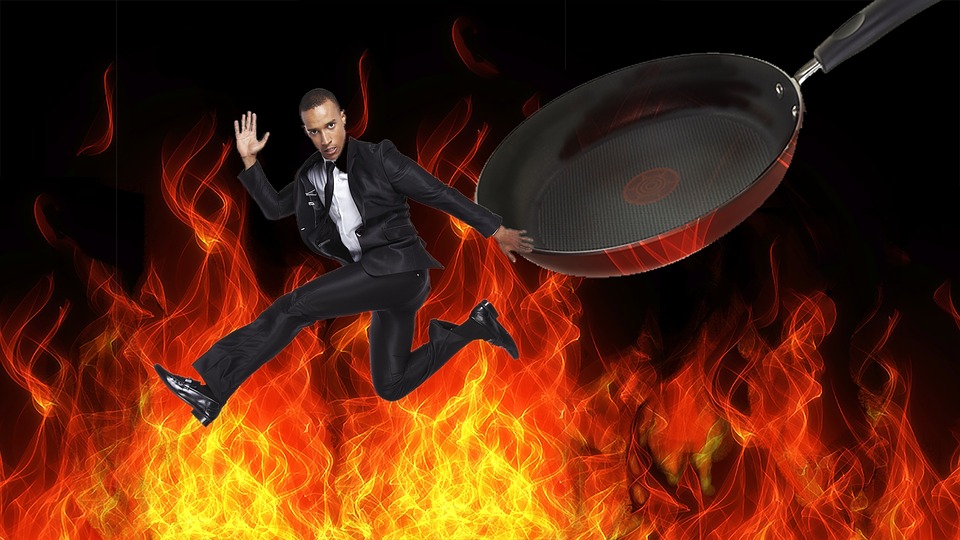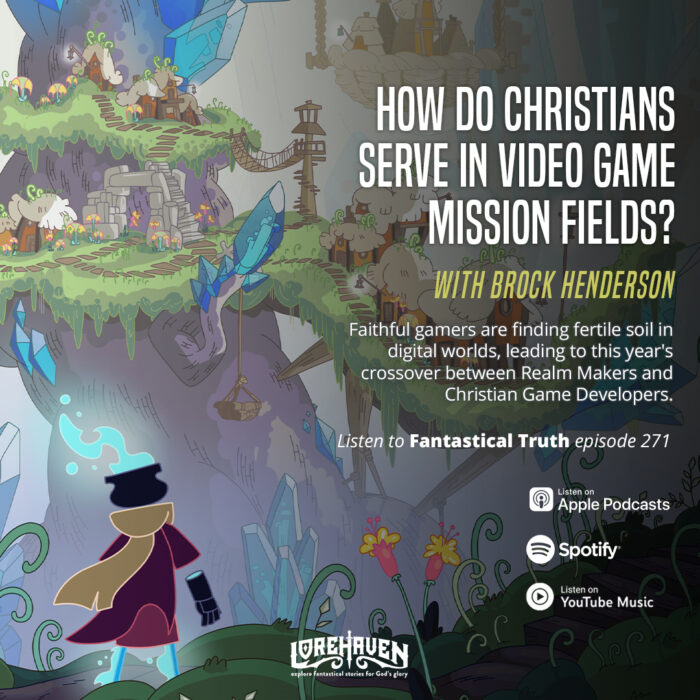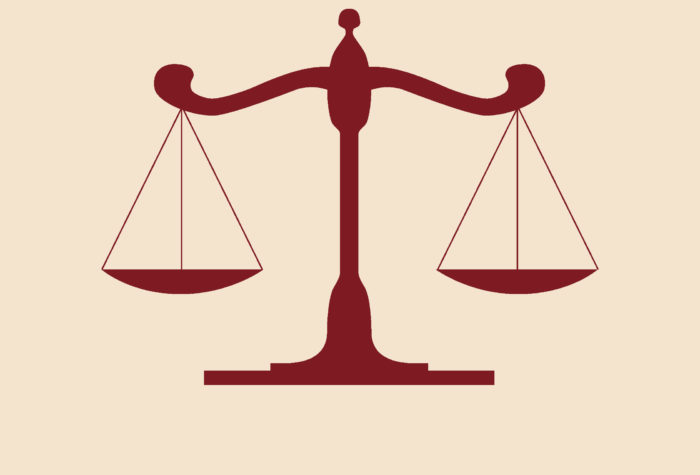Weaker Brothers Shouldn’t Boss Christians About Social Justice Work
Weaker brothers1 may not mean to boss other Christians.
Maybe they mean only to share their own opinions2 about food, popular culture, or holidays.
Maybe they just need to share their own struggles and hear other Christians empathize.
Or maybe they even need to hear other Christians say, more wisely, “Hmm, I understand your struggle, and I’m glad to help, but have you considered that this is your own struggle and not everyone else’s?”
Often, at least at first, the weaker brother’s weakness is based on vulnerability to particular temptations. He/she can’t hear certain music or eat certain foods without associating these with evil.
Leveling up: The weaker brother boss
 Other times, they are not really struggling with temptations. I fear they’ve grown past being a struggling weaker brother, and have been promoted to the position of a weaker brother boss. Sometimes the person promotes himself. And/or at other times, Christians end up saying to weaker brothers, “Here, you seem to be an expert on this. You seem passionate and Called to This Ministry. You’ve just been promoted to the level of boss!”
Other times, they are not really struggling with temptations. I fear they’ve grown past being a struggling weaker brother, and have been promoted to the position of a weaker brother boss. Sometimes the person promotes himself. And/or at other times, Christians end up saying to weaker brothers, “Here, you seem to be an expert on this. You seem passionate and Called to This Ministry. You’ve just been promoted to the level of boss!”
Either way, this person begins to believe his own views about “holiness” are biblical commands.
He or she says “thou shalt,” when God has not said this.
He or she behaves like a Pharisee, and makes up laws around God’s actual Law, while implying or stating outright, “Thus saith the Lord.”
This happens with music, food, and fantasy. But more recently, newer weaker brothers have begun to boss Christians about social justice issues (which I abbreviate here as SJI ).
Weaker-brother bosses impose SJI rules on other Christians in at least three areas: work, language, and doctrine.
Weaker-brother boss: ‘Follow my social-justice work!’
 For this I must reference an example. Not long ago, I encountered a chap who had just gotten hold of a particular religious cause. Our conversation started with this article about “millennial burnout.” I remarked about how the writer simply assumed several “doom” scenarios for not only individuals, but the entire planet.
For this I must reference an example. Not long ago, I encountered a chap who had just gotten hold of a particular religious cause. Our conversation started with this article about “millennial burnout.” I remarked about how the writer simply assumed several “doom” scenarios for not only individuals, but the entire planet.
I asked, “How much of this recurring burnout is due to these rather Godless and anti-eternal false beliefs we keep internalizing?”
In response, someone asked me if I could really be so callous about all these people suffering. We need to do something! Now!
Later I realized that this is weaker-brother bossing. We’ve seen this before.
Christians have acted as if “ministry” jobs, such as pastors or missionaries, are the only godly jobs. These jobs are all about saving souls for eternity. These jobs make you an upper-tier Christian.
Other jobs, such as banking or construction, are maybe okay. But they’re not as spiritual. They’re all about this world, earning profit and supporting your family. These jobs make you a lesser-tier Christian.
The SJI weaker-brother boss follows the same pattern. He associates “regular” jobs—oddly enough, including pastors and missionaries!—with sin, hypocrisy, or shallow spirituality. Instead, the weaker-brother boss insists everyone become a full-time justice advocate. Everyone must effectively have the same job. Because our situation is that drastic. Because otherwise, more people will suffer or die because you didn’t care enough.
Resist the weaker-brother boss’s legalism
This assumption about a Christian’s work is plain legalism.
It ignores the plain teaching of Scripture: that God created humans to steward the Earth in many ways.3
In this instance, I replied to this person4 by saying that if we took this posture to its rational conclusion, this leaves no time for anything else. Not exchanging comments on Facebook or creating art. Nothing but miserly and minimalist living. No parties, no rest, only constant self-abasement.
And we haven’t even gotten started about how Jesus has called Christians as the Church to their primary mission of discipling others. (This Great Commission restores, and in some cases supersedes, the earlier mandate for humans to make culture.)
In other words, the weaker-brother boss has (accidentally?) taken the exact posture of a sort of medieval Christian monk. At best, he provides only contemplation and care for the poor, at the expense of human flourishing. Or at worst, he gains the perks of spiritual influence and control over others, leading to fulfillment of a messiah complex.
All Christians are called to relieve Pain and Suffering in the world wherever we can. But our callings differ. If [name of perceived global problem] is real, then yes, I decline the implication that if I’m really a good person, then I ought to be concerned about it, and/or Do Something About It, and when I make this rejection, I equally reject any attempt at legalistic guilt-tripping. . . .
Someone else’s stewardship calling is not identical to mine. When it comes to Mega-Global Earth Issues, about the best I can do is recycle. Nobody should be coming along and deciding that, over top of my previous commitments to Christ, my family, my local church, and the global Church, and my job, and my other job, and my other job, and my other other job, that I also need to take a monk-like vow of Particular Planet Care.
Frankly, I think this is the only kind of basic response to offer a weaker-brother boss (about work or anything else). It starts with some measure of happy, biblical conviction. Unless your work involves actual sin, you can say:
- I have an important calling from God.
- You may have a different calling from him.
- If you associate my calling with some kind of sin, you are wrong and legalistic.
- With some exceptions, I am very happy in my work, and know that it pleases God.
- I will not accept the burden of this guilt that you, perhaps by accident, try to impose on me.
- This boss behavior will not make you happy, and does not please our God who gives his people different callings.
- Please see how your behavior resembles the very legalism you may want to avoid, and stop demanding we all share the same work.
Or, as the apostle Paul said, when early Christians accused one another of having less-spiritual gifts or callings:
For the body does not consist of one member but of many. If the foot should say, “Because I am not a hand, I do not belong to the body,” that would not make it any less a part of the body. And if the ear should say, “Because I am not an eye, I do not belong to the body,” that would not make it any less a part of the body. If the whole body were an eye, where would be the sense of hearing? If the whole body were an ear, where would be the sense of smell? But as it is, God arranged the members in the body, each one of them, as he chose. If all were a single member, where would the body be? As it is, there are many parts, yet one body.
The eye cannot say to the hand, “I have no need of you,” nor again the head to the feet, “I have no need of you.” On the contrary, the parts of the body that seem to be weaker are indispensable, and on those parts of the body that we think less honorable we bestow the greater honor, and our unpresentable parts are treated with greater modesty, which our more presentable parts do not require. But God has so composed the body, giving greater honor to the part that lacked it, that there may be no division in the body, but that the members may have the same care for one another. If one member suffers, all suffer together; if one member is honored, all rejoice together.5
Next: Weaker Brothers Shouldn’t Boss Christians About Social Justice Language.
- And sisters. Greek adelphoi in the New Testament refers to both. ↩
- I avoid using the term “conviction” about things that Christians consider adiaphora, that is, matters that aren’t essential to the faith. The term “conviction” seems best suited to explicit gospel matters. For instance, my conviction is that Christ died and resurrected. But it’s not my “conviction” that Christians should dress a certain way for church services. ↩
- See Genesis 1:28; theologians call this God’s “cultural mandate.” This calling means we practice agriculture and creature care. It also means we reflect God’s image by our creative works, which can include stories, songs, and beyond. ↩
- Note that I did not provide a lot of Scripture in my replies. The person seemed to be basing his views on reactions to the “bad guys,” rather than proactive faithfulness to God’s word. ↩
- 1 Corinthians 12:14–26. ↩


















[…] Weaker Brothers Shouldn’t Boss Christians About Social Justice Work | E. Stephen Burnett, Mar 1 […]
[…] Weaker Brothers Shouldn’t Boss Christians About Social Justice Work | E. Stephen Burnett, Mar 1 […]
[…] Weaker Brothers Shouldn’t Boss Christians about Social Justice Work […]
[…] Weaker Brothers Shouldn’t Boss Christians about Social Justice Work . ↩ […]